Celebrating M. Shawn Copeland
Celebrating M. Shawn Copeland: Memory, Freedom, and Solidarity
This two-day event celebrates the life and work of M. Shawn Copeland, Professor of Theology and African and African Diaspora Studies at Boston College, who plans to retire at the end of this academic year. Copeland has made an extraordinary impact on the interdisciplinary fields of Theological Anthropology, Black Catholic Studies, Lonergan Studies, Womanist Theology, Political Theology, Decolonial Theory, and Christian Spirituality, to name only a few. Scholars from around the country are gathering to honor her achievements and to interpret the ongoing significance of her creative, challenging, revolutionary thinking. BC students, faculty, staff, administrators and others from larger academic, social, and ecclesial communities outside BC are welcome to attend.
Cosponsorship by the Theology Department, and African and African Diaspora Studies
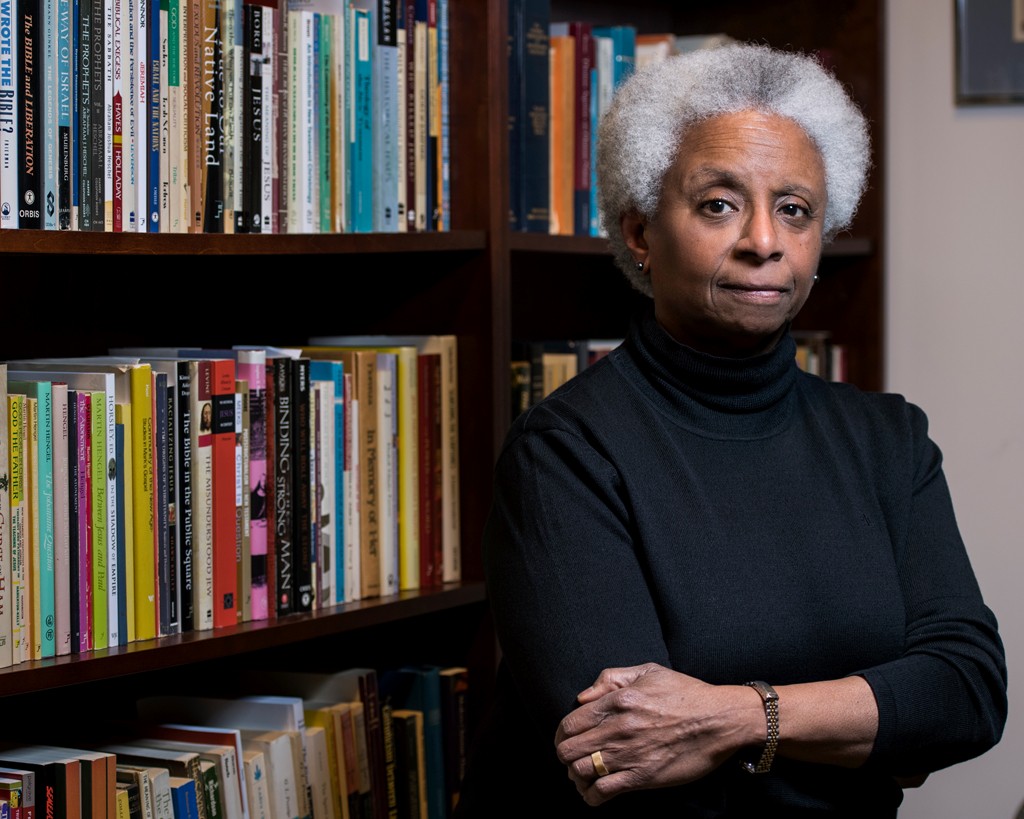
Shawn Copeland
About Shawn Copeland:
M. Shawn Copeland joined the faculty as a tenured Associate Professor of Systematic Theology in 2003 and was promoted to Full Professor in 2013. She earned her Ph.D. in Systematic Theology from Boston College in 1991. She is the author of three monographs: Knowing Christ Crucified: The Witness of African American Religious Experience (Orbis, 2018), Enfleshing Freedom: Body, Race, and Being (Fortress, 2010), and The Subversive Power of Love: The Vision of Henriette Delille (Paulist, 2009), as well as coeditor of four theological volumes: Grace and Friendship: Theological Essays in Honor of Fred Lawrence (Marquette, 2016), Uncommon Faithfulness: The Black Catholic Experience (2009), Feminist Theologies in Different Contexts (SCM/Orbis, 1996) and Violence Against Women (SCM/Orbis, 1994). She has published more than 125 articles and essays. She has also given more than fifty named lectures at prestigious institutions of higher learning. Her work has recently been featured in a volume edited by Michele Saracino and Robert Rivera, two of the conference speakers: Enfleshing Theology: Embodiment, Discipleship, and Politics in the Work of M. Shawn Copeland (Fortress, 2018).
She is the past president of the Catholic Theological Society of America (CTSA) and past convener of the Black Catholic Theological Symposium (BCTS). She is the recipient of numerous awards, including the CTSA’s highest honor, the John Courtney Murray Award for Distinguished Theological Achievement (2018); the Ann O’Hara Graff Memorial Award from the Women’s Consultation in Constructive Theology at the CTSA (2014); the Marianist Award from the University of Dayton (2017), which recognizes “a Catholic scholar, author, and theologian, who has made an outstanding contribution to the intellectual life”; and the Elizabeth Seton Award from Mount St. Joseph College, honoring a Distinguished Woman Theologian (2011). She is the recipient of honorary degrees from Fairfield University (2018); the Aquinas Institute of Theology (2011); the Catholic Theological Union (2009); the Jesuit School of Theology, Berkeley (2007); Holy Names College (2002); and Emmanuel College (1989).
Conference Themes
“Memory,” “freedom,” and “solidarity” are central themes that run throughout Copeland’s many areas of research and tie them together. Each of these themes might be expressed through a cluster of questions:
Memory—How do we remember rightly? How do we remember especially those who have not only suffered and died but also struggled creatively in the midst of daunting historical circumstances? How do we remember those we may be accustomed to forget, such as women, the poor, the racially marginalized, the religiously marginalized, the sexually marginalized, those deemed “other” by modern imperial society? How do we remember embodied lives and embodied hopes? How can we remember the promises of God revealed in history, while challenging false memories and narratives?
Freedom—What does freedom mean for a people long enslaved? How have those in various kinds of bondage sought and discovered internal wellsprings of freedom? What interlocking conditions of oppression remain obstacles to the full experience of human freedom, and how do we analyze and counteract them? What sorts of embodied and communal relationships are we freed for? How do theological discourses of freedom differ from and relate to those coming out of modern turns to the subject? How is freedom “enfleshed” in real historical lives?
Solidarity—How can we develop a compassionate praxis of radical identification with those burdened by complex histories of violence? How can we be present with those who suffer? How can we be actively joined together with those who struggle for a better life? How can we interpret Christianity as an ethically obligating call to follow Jesus in discipleship, to serve the least of these, and if necessary to bear the weight of the cross in the fight again injustice? How can we relate Christian social praxis with modern grassroots movements for social transformation? How can we understand divine love, particularly as celebrated in the Eucharist, as an act of divine solidarity?
Schedule of Events
Friday, April 26
4:00-4:45 P.M. Evening Prayer
Chapel in Simboli Hall, School of Theology and Ministry, Brighton Campus
4:45-5:30 P.M. Reception
Auditorium Vestibule, School of Theology and Ministry Library, Brighton Campus
5:30-6:30 P.M. Keynote Address by Francine Cardman
Auditorium, School of Theology and Ministry Library, Brighton Campus
Saturday, April 27
*All Panels and Coffee Breaks Take Place in Gasson Hall, room 305, Chestnut Hill Campus
9:00 – 9:15 A.M. Greetings and Opening Prayer
9:15 – 10:45 A.M. Panel 1: Remembering Copeland, Remembering with Copeland
Panelists: Jamie Phelps, Fred Lawrence, Michele Saracino
Moderator: Karen Teel
10:45 – 11:00 A.M. Coffee Break
11:00 – 12:30 P.M. Panel 2: Freeing the Subject, Freeing the Body
Panelists: Pamela Lightsey, Bryan Massingale, Mayra Rivera
Moderator: Bobby Rivera
12:30 – 1:30 P.M. Lunch
1:30 – 3:00 P.M. Panel 3: The Solidarity of the Cross: Christianity and Discipleship
Panelists: Shawnee Daniels-Sykes, Mary Ann Hinsdale, Nancy Pineda-Madrid
Moderator: Christine Firer-Hinze
3:00 – 3:15 P.M. Coffee Break
3:15 – 4:45 P.M. Panel 4: A Conversation with Copeland
Panelist: M. Shawn Copeland
Moderator: Amey Victoria Adkins-Jones
5:00 – 6:00 P.M. Eucharist, Fr. Marcel Uwineza, SJ (Celebrant), Fr. Oscar Pratt (Concelebrant), and Fr. Bob Daly, SJ (Concelebrant), presiding
Chapel at St. Mary’s Hall, Chestnut Hill Campus
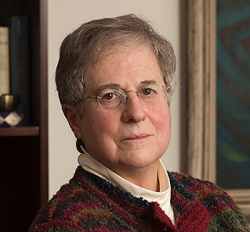
Francine Cardman
A native Long Islander, Francine Cardman did her undergraduate work at Swarthmore College (B.A.) and her graduate studies at Yale University (M.Phil, Ph.D.) where she specialized in historical theology and early Christianity, writing a dissertation on Tertullian and the resurrection of the body. She has taught at Wesley Theological Seminary in Washington, D.C., Weston Jesuit School of Theology in Cambridge, and now at the School of Theology and Ministry at Boston College. She is a past-president of the North American Academy of Ecumenists, has served on the Eastern Orthodox/Roman Catholic Consultation in the United States, has been a board member and vice-president of NETWORK, the Catholic social justice lobby in Washington, D.C., and was a founding member and long-time board member of the Women’s Theological Center in Boston. Whether addressing contemporary or ancient issues, what is common to her teaching and writing is an historical approach that grounds theology and ministry in their social and cultural contexts. In addition to translating Augustine’s commentary on the Sermon on the mount, she has written on the development of doctrine and early Christian ethics; women’s ministry in early Christianity; questions of tradition and hermeneutics in regard to the ordination of women; lay leadership and participation in the early church; structures of governance and accountability in the church; and Vatican II and ecumenism. She is currently working on a book on early Christian ethics.
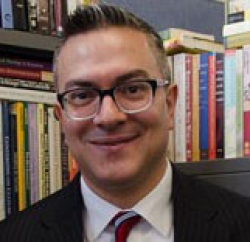
Robert Jay Rivera
Robert J. Rivera, earned his PhD in Systematic Theology from Boston College. His dissertation, A Christology of Liberation in the Age of Globalization and Exclusion: The Contributions of Edward Schillebeeckx and Jon Sobrino, develops a christology of liberation as a critical resource that enables excluded peoples to resist, redeem, and re-imagine globalization. Prof. Rivera was the recipient of the annual (2011-2012) Donald J. White Teaching Excellence Award, which recognizes graduate teaching fellows and teaching assistants who distinguished themselves in classroom instruction at Boston College. He was also a North American Doctoral Fellow with the Fund for Theological Education (2012/2013). A New York born Puerto Rican, Dr. Rivera and his partner have three sons, and they enjoy road trips, sports, movies and ice cream.
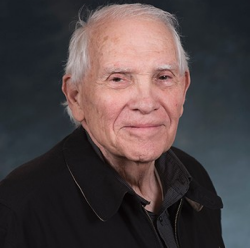
Fred Lawrence
Fred Lawrence is Professor of Theology at Boston College. He has been running the annual Lonergan Workshop at Boston College for many years, and is editor of Lonergan Workshop, which publishes the proceedings. He also convened the First and Second International Lonergan Conferences at Rome (2001) and Toronto (2004), and the Third and Fourth International Lonergan Conferences at Mainz and Jerusalem (2013) respectively. Lawrence was a student of Bernard Lonergan at the Gregorian University, Rome, and is today one of the foremost interpreters of Lonergan's thought and an acknowledged hermeneutical philosopher in his own right. He did his PhD on the 'unlikely topic' of the hermeneutical circle in the thought of Gadamer and Lonergan. The thesis had the unique distinction of being appreciated by both thinkers. His most recent work is The Fragility of Consciousness: Faith, Reason, and the Human Good, ed. Randall S. Rosenberg and Kevin M. Vander Schel (Toronto: University of Toronto Press, 2017).
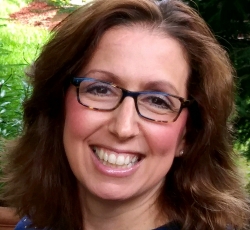
Michele Saracino
Michele Saracino is professor of religious studies at Manhattan College in Riverdale, New York. Her research focuses on the intersections among theological anthropology, contemporary continental theory, psychologies of the self, and expressions of religiosity in everyday life. She has recently coedited Enfleshing Theology (Lexington Books: Lanham, MD, 2018) with Robert Rivera. This volume is a collection of essays on the distinguished Catholic theologian, M. Shawn Copeland. She is the author of various essays and four books, the latest entitled: Christian Anthropology: An Introduction to the Human Person (Paulist Press, 2015). Her book, Being about Borders: A Christian Anthropology of Difference (Liturgical Press, 2011) won 1st Place Book Award in Theology from the Association of Catholic Publishers. Currently she is working on a project on empathy.
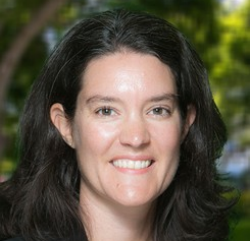
Karen Teel
Karen Teel, PhD, is Associate Professor in the Department of Theology and Religious Studies and Affiliated Faculty in the Department of Ethnic Studies at the University of San Diego. Her research and teaching endeavors center around theological engagement with the problems of racism and white supremacy. She is the author of Racism and the Image of God and has published essays in edited volumes and journals including Black Theology, Journal of the American Academy of Religion, Teaching Theology and Religion, and Enfleshing Theology (ed. Rivera and Saracino), the 2018 festschrift for M. Shawn Copeland.
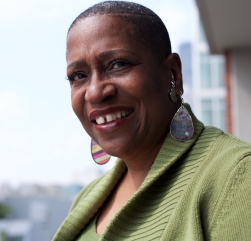
Dr. Pamela Lightsey
Dr. Pamela Lightsey has a stellar history as a senior administrator and scholar in higher education. She currently serves as Vice President for Academic Affairs at Meadville Lombard Theological School. Before her appointment at Meadville, she was Associate Dean at Boston University School of Theology. She is also an ordained elder in the Northern Illinois Conference of the United Methodist Church. Dr. Lightsey is a womanist theologian using the methodology of constructive theology. She has served as co-chair of the American Academy of Religion's Womanist Approaches to Religion and Society Group. She is currently a member of the Workgroup on Constructive Theology. Dr. Lightsey is an honorably discharged veteran of the United States Army. She served as a member of the original executive committee for the Soul Repair Project, which studies the role of moral injury in military veterans. As an activist, Dr. Lightsey has worked within the LGBTQ community to end Don’t Ask, Don’t Tell military policy and to ensure marriage equality, and she is a leading activist against the United Methodist Church's homophobic polity. Pamela was on the ground protesting against excessive police force during the first 21 days of unrest in Ferguson and was one of several livestreamers providing ongoing broadcasts across a one-year period. Dr. Lightsey has consistently collaborated with activist-colleagues in the movement for the liberation of Black lives, those addressing violence against Black transwomen, and institutional racism on college campuses. Pamela’s several publications include the full manuscript, Our Lives Matter: A Womanist Queer Theology (Wipf and Stock), “He Is Black and We are Queer” in Albert Cleage Jr and the Black Madonna and Child (New York: Palgrave Macmillan), “Reconciliation,” in Prophetic Evangelicals: Envisioning a Just and Peaceable Kingdom (Wm. B. Eerdmans Publishing Company), “If There Should Come a Word” in Black United Methodists Preach! (Abingdon Press) and a work in progress “Blinking Red: The Escalation of a Militarized Police Force and Its Challenges to Black Communities.” Pamela is the mother of two adult children, one adult goddaughter whom she helped raise and has two grandsons.
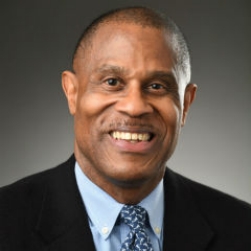
Bryan N. Massingale
Bryan N. Massingale is the James and Nancy Buckman Professor of Theological and Social Ethics, as well as the Senior Ethics Fellow in Fordham’s Center for Ethics Education. Prior to his appointment at Fordham, he was Professor of Theology at Marquette University.
Professor Massingale is a leader in the field of theological ethics. He is a past Convener of the Black Catholic Theological Symposium and a former president of the Catholic Theological Society of America. He is a member of the Board of Directors of the Society of Christian Ethics and serves on the editorial board of Theological Studies, one of the premier Catholic journals of theology. He also served on the editorial boards of the Journal of Moral Theology and the Journal of the Society of Christian Ethics. He is a current member and past coordinator of the North American Regional Committee of the “Catholic Theological Ethics in the World Church” project. Dr. Massingale is the recipient of four honorary doctorates, and has held the Bernard J. Hanley Chair at Santa Clara University. He is also the recipient of Marquette University’s highest award for teaching excellence (2009). He is the author of works such as Racial Justice and the Catholic Church (Maryknoll, NY: Orbis Books, 2010); “The Erotics of Anti-Blackness: Police Sexual Violation of Black Bodies,” in Vincent W. Lloyd and Andrew Prevot (eds.), Antiblackness in Christian Ethics (Maryknoll, NY: Orbis Books, 2017), 173-194; and “Beyond ‘Authentically Black and Truly Catholic’: Black Catholic Identity for a New Time,” Journal of the Black Catholic Symposium 10 (2017), 41-61.
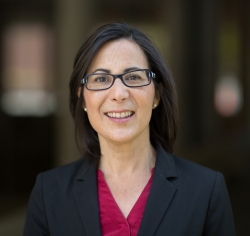
Mayra Rivera
Mayra Rivera is Professor of Religion and Latinx Studies at Harvard University. She is also chair of the standing Committee on Ethnicity Migration Rights and a faculty member in Harvard’s doctoral program in American Studies. Rivera works at the intersections between continental philosophy of religion, literature, and theories of coloniality, race and gender—with particular attention to Caribbean postcolonial thought. Her research explores the relationship between discursive and material dimensions in shaping human embodiment. Her book, The Touch of Transcendence: A Postcolonial Theology of God (2007), explores the relationship between models of divine otherness and ideas about interhuman difference. She is also co-editor, with Stephen Moore, of Planetary Loves: Spivak, Postcoloniality, and Theology (2010) and, with Catherine Keller and Michael Nausner, of Postcolonial Theologies: Divinity and Empire (2004). Her most recent book, Poetics of the Flesh (2015), analyzes theological, philosophical, and political descriptions of “flesh” as metaphors for understanding how social discourses materialize in human bodies. Rivera is currently developing a project that explores narratives of catastrophe and/as Genesis in twentieth century Caribbean writing. She is also at work on a book examining the role of religion in the constitution of the human in the works of Caribbean writer and theorist Sylvia Wynter.
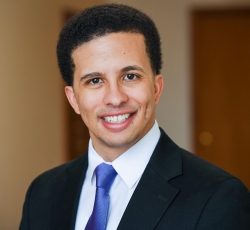
Andrew Prevot
Andrew Prevot is Associate Professor of Theology at Boston College. His research spans the areas of spiritual and mystical theology; philosophical theology and continental philosophy of religion; and various forms of political, liberation, black, and womanist theology. He is the author of two monographs, Theology and Race: Black and Womanist Traditions in the United States (Brill, 2018) and Thinking Prayer: Theology and Spirituality amid the Crises of Modernity (Notre Dame, 2015), and coeditor of a collection of essays called Anti-Blackness and Christian Ethics (Orbis, 2017). His articles dealing with racial questions in theology include "Not Nothing: A Mystical Theological Reading of Cornel West's 'Nihilism in Black America'" (forthcoming), "The Hope of Exodus: Black and Womanist Receptions of Christian Theology" (forthcoming), "Sources of a Black Self: Ethics of Authenticity in an Era of Anti-Blackness" (2017), "Divine Opacity: Mystical Theology, Black Theology, and the Problem of Light-Dark Aesthetics" (2016), "Hearing the Cries of Crucified Peoples: The Prayerful Witness of Ignacio Ellacuria and James Cone" (2014), and "The Aporia of Race and Identity: J. Kameron Carter and the Future of Black Liberation Theology" (2011). He is currently working on a book-length study of the grace of divine union in contemporary mystical theology, including in various womanist sources.
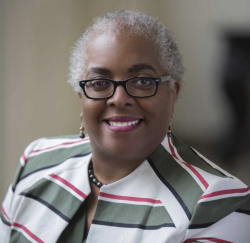
Shawnee Marie Daniels-Sykes
Shawnee Marie Daniels-Sykes completed PhD studies in Religious Studies at Marquette University. A Professor in the Department of Theology at Mount Mary University, Milwaukee, Shawnee specializes in Theological Ethics and subspecializes in Bioethics. Shawnee has undergraduate degrees in biology and biochemistry from Spelman College, Atlanta, Georgia and nursing from the University of Wisconsin-Milwaukee. During the summers one might find her facilitating graduate seminars at the Institute for Black Catholic Studies at Xavier University of Louisiana. As the only African American Catholic female ethicist in the United States, she employs Catholic Social Teaching and insights from the work of the late Bernard Lonergan to examine beginning, middle, and end of life concerns from the perspective of social bioethics. Selected to address the 2018 international gathering of Catholic Theological Ethics in the World Church, where 500 Catholic Moral Theologians gathered in Sarajevo, she addressed the topic Networking for Social Impact, emphasizing the collaborations between the Black Catholic Theological Symposium (BCTS) and the Academy of Catholic Hispanic Theologians of the United States (ACHTUS) . Shawnee's case studies, reflections, essays, keynote addresses, book chapters, and book reviews are included in a variety of books, e-journals, journals, forums, and e-newsletters. She is "google-able."
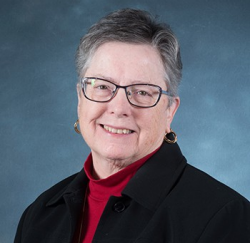
Mary Ann Hinsdale
Mary Ann Hinsdale is Associate Professor of Theology at Boston College. She holds a doctorate in systematic theology from University of St. Michael's College, Toronto, and is known for her research and teaching on ecclesiology, theological anthropology, and feminist theologies. She is the author of numerous articles and book chapters and the author/editor of several books, including Women Shaping Theology and the award-winning Faith That Transforms: Essays in Honor of Gregory Baum. She is a past president of the Catholic Theological Society of America and recipient of the CTSA's Ann O'Hara Graff Award. She is also a recipient of the Elizabeth Seton Medal (2017).
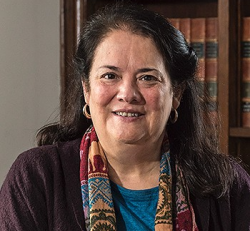
Nancy Pineda-Madrid
Nancy Pineda-Madrid is Associate Professor of Theology and Latino/Latina Ministry at the Boston College School of Theology and Ministry. She holds a doctorate in systematic and philosophical theology from the Graduate Theological Union. Her areas of research and teaching interest include systematic and practical theology, Latino/a theologies, salvation, and feminist theologies. She is the past president of Academy of Catholic Hispanic Theologians of the United States and former vice president of International Network of Societies of Catholic Theology. She is the author of the book Suffering and Salvation in Ciudad Juárez and co-editor of the STM faculty-authored books, Hope: Promise, Possibility, and Fulfillment and The Holy Spirit: Setting the World on Fire.
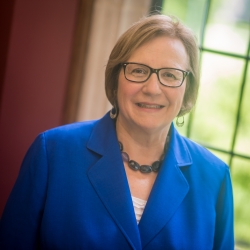
Christine Firer Hinze
Christine Firer Hinze is Professor of Theology and Director of the Francis and Ann Curran Center for American Catholic Studies at Fordham University. She holds a B.A. in religion and an M.A. in theology from the Catholic University of America, and a Ph.D. in Christian social ethics from the University of Chicago. Her teaching and research focus on foundational and applied issues in Christian social ethics with special emphasis on dynamics of social transformation, Catholic social thought, and economic and work justice for vulnerable women and families. She is the author of Comprehending Power in Christian Social Ethics (Oxford, 1995), co-editor (with J. Patrick Hornbeck) of More Than a Monologue: Sexual Diversity and the Catholic Church, vol 1 (Fordham University Press, 2014), Glass Ceilings and Dirt Floors: Women, Work, and the Global Economy (Paulist, 2015), and a forthcoming volume, Radical Sufficiency: The Legacy and Future of the Catholic Living Wage Agenda. Her scholarly essays appear in, e.g., Theological Studies, The Journal of the Society of Christian Ethics, The Journal of Catholic Social Thought, and Studies in Christian Ethics. Christine engaged in inner-city ministry and taught high school in her hometown of Detroit prior to doctoral studies. She taught---with Prof. Copeland--at St. Norbert College and Marquette University prior to her 2006 appointment at Fordham. Christine and her husband Brad, also a theologian, are the parents of two sons, and members of Our Lady of Angels parish, Bronx, NY.

Amey Victoria Adkins-Jones
Amey Victoria Adkins-Jones is Assistant Professor of Theology and African and African Diaspora Studies Program at Boston College in Chestnut Hill, MA. Her scholarship specializes in Mariology and black feminist thought. She earned her BA at the University of Virginia and her MDiv from Duke Divinity School, before receiving her Ph.D. in Religion from Duke University in 2016 with a Certificate in Feminist Theory. She is the first African-American woman to earn a doctorate from the school in the field of theology and ethics. Dr. Adkins-Jones is currently finishing her first book, (M)other of God: Race and the Christian Tradition of Trafficking Sex, which ties Christian narratives of colonialism, whiteness, rape and virginity to the rise of the global sex trade. She is also at work on a second book project titled See No Evil: Iconic Resistance and a Theology of Black Being, which considers how technology teaches us to see race, perpetuating injustice and black death.
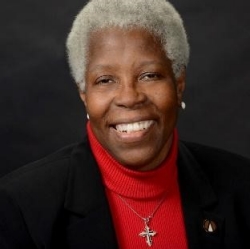
Sr. Jamie T. Phelps, O.P., B.A, MSW, MA, PhD
Currently Sr. Jamie is a freelance Theologian and lecturer; facilitator for bible study at St. Ambrose and St. Thomas the Apostle parishes in Chicago and a lecturer for Pax Christi’s “Communities of Color Mobilizing for Peace” Weekends; and an editor for New York’s Haitian Catholic Newsletter Solidarité
Prior to this, Sr. Jamie T. Phelps, OP was a Founding Member of National Black Sisters Conference (NBSC-1968ff). Ministerially, Sr. Jamie has been an educator (teaching from first grade to the PhD levels), social worker theologian and program developer) She served as a consultant to Fr. Thaddeus Posey, OFM Conv. For the founding of the Black Catholic Theological Symposium and the Institute for Black Catholic Studies (IBCS) of Xavier Univeristy of Louisiana where she served as the Director and Katherine Drexall professor of Theology at Xavier University of Louisiana from 2003-2011. She also served on the theological/or religious studies faculties of The Catholic Theological Union (1986 -1998 where she was the Founding Director of CTU’s Augustus Tolton Pastoral Ministry Program); Loyola University Chicago (1998- 2003); and visiting Professor of Theology at the University of Dayton, Dayton Ohio (January-May, 2003) and the University of Notre Dame (2005-2006 & 2012-2013).

